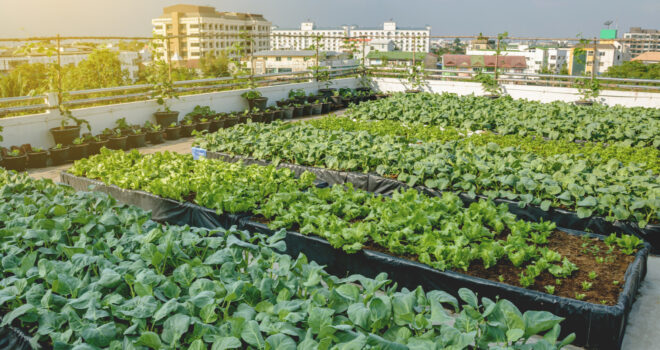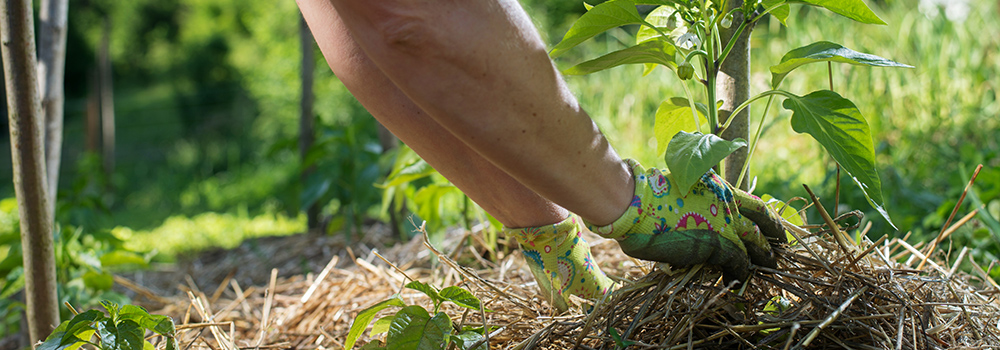Cities are gradually developing urban agriculture policies to become healthier, more environmentally-friendly places to live.
Like everywhere else in the world, there is a growing interest in urban agriculture in Quebec. The Ministère de l’Agriculture, des Pêcheries et de l’Alimentation du Québec has even adopted a Stratégie de soutien en agriculture urbaine 2016-2019 [2016–2019 urban agriculture support strategy]. The objective is to encourage cities to develop their own urban agriculture policies.
Two major urban areas have recently done just that: the Montreal borough of Rivière-des-Prairies–Pointe-aux-Trembles and the city of Longueuil.
Triple the number of urban agriculture spaces by 2030
Over the next 10 years, Rivière-des-Prairies–Pointe-aux-Trembles plans to increase the amount of land dedicated to urban agriculture from 10 to 30 hectares. That’s the equivalent of 37 football fields, which will be used for growing fruits and vegetables.
The borough used to be dynamic agricultural land, but the landscaped changed dramatically in the 1900s with industrial and residential development, and agricultural activities gradually moved outside of Montreal.
Rivière-des-Prairies–Pointe-aux-Trembles is, however, rich in resources. It’s one of the few areas on the Island of Montreal that still has vast vacant spaces, and a lot of land on the edge of the borough is still fallow land. These offer a great opportunity to boost local food production and provide food to residents through short food chains.
In 2018, the municipal team, in collaboration with the local Éco-quartier and Laboratoire sur l’agriculture urbaine (AU/LAB) [Urban Agriculture Lab], launched a consultation process. It was a great way to get local stakeholders involved. Nearly 650 residents attended the public consultation meetings and participated in the survey.
The Rivière-des-Prairies–Pointe-aux-Trembles urban agriculture policy, which was adopted in December 2019, is in line with its Local Sustainable Development Plan and Healthy Living Policy. The policy includes five strategic guidelines and focuses on supporting community and grassroots initiatives.
Improving residents’ quality of life
Located on Montreal’s South Shore, the city of Longueuil is Quebec’s fifth-largest city in terms of population.
Agricultural land accounts for nearly a quarter of the city, but Longueuil’s ambition is to develop agriculture in the heart of the city and residential areas.
Some 88% of residents already grow fruits and vegetables on their balconies and gardens, and 56% of them have been doing so for less than 10 years. What motivates them most is having access to fresh food and being able to eat more healthily.
During the public consultation, residents pointed out the lack of spaces for urban agriculture and the need for more knowledge about it.
That’s why Longueuil has committed to increasing spaces dedicated to community and collective gardens and better equipping residents by 2025. The city also plans to create an urban agriculture reference guide and offer training activities. And the Jardinothèque, where fruit, vegetable, flower and herb seeds are freely available to the public, will be expanded to other libraries.
Resources
Politique d’agriculture urbaine de Rivière-des-Prairies-Pointe-aux-Trembles



 Fava beans
Fava beans  Onions
Onions  Vegetable garden: growing eggplant
Vegetable garden: growing eggplant 










